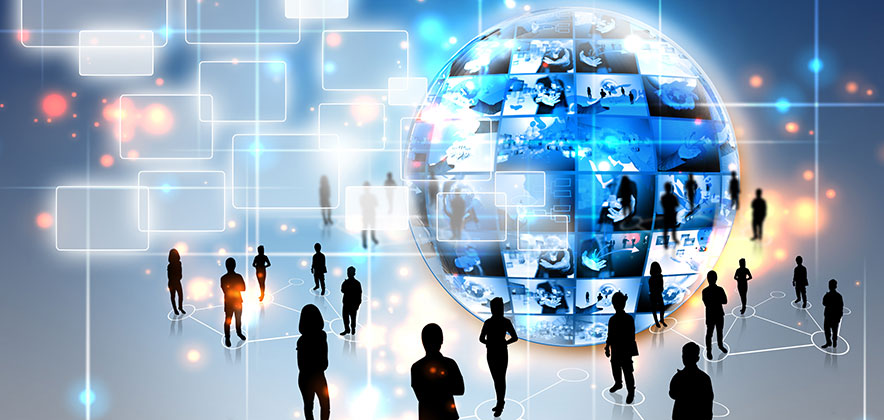Throughout history, whenever new technologies that alter our methods of production and communication have developed, they have tended to modify society. The last century’s rapid technical growth in biotechnology, information technology, nanotechnology, and artificial intelligence offers the promise of doing the same for our modern, post-industrial world.
The industrial age produced our political institutions, the rule of law, human rights, the financial system, our education system, and even capitalism itself. As individuals, we have learned to navigate the industrial economy, and as societies, we may exert some control over its shape and bounds. But, in a post-industrial world, what comes next? Digital products and services, the internet, and mobile technology have all revolutionized our lives in the last decade. This is the outcome of 50 years of progress; there is yet much more to come. Recent studies, for example, show that digitization is likely to replace around half of all known jobs within the next 20 years.
Table of Contents
Technology of the future
More was better in the industrial economy, but this is no longer always the case. The industrialized world is sick from overeating, while increased productivity leads to cheaper commodities and increased consumption, squandering Earth’s resources at an increasing rate and fostering a wasteful, consumer-based economy. Instead, a future economy would try to produce a world with almost little waste.
The intersection of cutting-edge biotech, infotech, nanotech, and cognitive sciences (BINC) will be at the heart of tomorrow’s living and intelligent technologies.
More components can be recycled as technology grows more lifelike, just as materials are recycled within biological systems. Because of automation, only a small portion of the population will be required to create and distribute what everyone requires. For example, currently, just around 2% of the Danish population is involved in agriculture and fishing, compared to nearly everyone 150 years ago – and this 2% can feed several countries the size of Denmark. With the development of personal fabricators — super-advanced 3D printers – citizens will most certainly be able to design, make, and recycle nearly anything they require at home.
The BINC technologies are anticipated to cause significant changes in society, much as computerization has done for the past 50 years. This might be as significant as the transition from the Stone Age to the Bronze Age, or from agricultural civilization to the scientific age of industry. Changes in economic and political institutions, national sovereignty, power balances, the environment, the human condition, and even religion are unavoidable as a result of such a transition. However, the changes will not occur over hundreds of years, but rather within a generation or so.
Four steps to transformation
What is causing this current shift? Four interacting patterns, we believe, reveal what is going on.
A digital economy
The digital economy is fundamentally different. Digital products and services are becoming a larger part of the economy, but only the first unit costs money and labor; subsequent digital copies are free. Such digitization and automation eliminate more employment than it generates, increasing demand for highly trained persons and competition for scarcer medium and low-level jobs. On the internet, such products are instantly global, and the best product takes all – look at Facebook, Google, and Microsoft’s dominance over their competitors.
A deteriorating middle class and democracy
The decline of the middle class in all industrialized nations, as recently reported by Thomas Piketty. The wealth and political power are more concentrated among the elites as the gap between the middle class and the super-rich increases. In today’s financial system, the return on investment in speculation is greater than the return on investment in production; getting rich is a more certain path to wealth than working.
Nation states will lose a significant portion of their tax revenue as almost half of middle-class jobs disappear. This will fundamentally transform the economic base upon which democratic states are governed unless we radically reconsider taxation. As economic and political elites converge, political power is increasingly concentrated in fewer hands. This power grab is aided by the information infrastructure, which allows for the monitoring and access to citizens’ data, degrading privacy, and civil and democratic rights.
One planet
Individual nations’ ability to address global challenges is limited. For example, CO2 emissions from one country have an impact on the entire planet; there is only one environment, and the transition to a sustainable energy system must be global.
As information, people, and capital travel more freely around the world, the earth is progressively being transformed from some 200 national economies to a single global economy with no common law. Businesses can relocate to low- or no-tax states, resulting in a race to the bottom, with rival nations lowering corporate tax rates even as income tax receipts decline. Single states will no longer be able to care for their citizens on their own. As nations become more interconnected, they will have challenges in aligning their often dramatically different economic, cultural, and governmental frameworks, such as traditional Arabic, industrial Russian, and modern, digitized Scandinavian.
